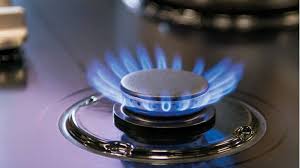Lois Ujadu-Francis
In Port Harcourt, where the vibrant food business serves as a lifeline for many women entrepreneurs, the rising cost of gas is more than just an economic statistic—it’s a pressing challenge that threatens their livelihoods. As fuel prices soar, the ripple effects are felt throughout the food supply chain, from sourcing ingredients to delivering products.
Nigeria’s high inflation rate, which was 32.15 percent in August, continues to impact energy prices, with the cost of cooking gas rising by as much as 70 percent year-on-year. According to the National Bureau of Statistics (NBS), the average retail price for refilling a 12.5kg cylinder of Liquefied Petroleum Gas (LPG) increased by 9.05 percent from July to August 2024. The highest prices for gas were recorded in states like Rivers, Cross River, and Abia, which are also oil and gas-producing areas. Conversely, the lowest prices were found in Bauchi, Nasarawa, and Adamawa.
“On state profile analysis, Rivers recorded the highest average retail price for the refilling of a 12.5kg Cylinder of LPG with N17,086.36 followed by Cross River with N17,050.00 and Abia with N17,012.52,” the NBS data for August showed.
Voices from the Market
Correspondent Lois Ujadu-Francis visited the Mile One Market in Port Harcourt to hear from food vendors about their experiences.
A street vendor, Patience John shared that she fills her gas for ₦1,400 per kg, noting that alternative measures like charcoal can only be used in environments that support it. “It can’t be possible to use charcoal in a public yard,” she said. She explained how the cost of gas has significantly affected food prices. “The way we are selling before and now, it’s not the same. Some customers will only buy rice or beans because of the price increase.”
Another vendor, Boma Phillip lamented, “Everything is hard; you have to cut your cloth according to your size.” She emphasized that if you only have ₦1,000, that’s what you eat.
A small restaurant owner, Beatrice Igwe also spoke of the rising costs. “We fill gas for ₦1,400 or ₦1,500 now. Before, it was ₦1,000 or ₦1,100. Food prices have skyrocketed. A plate of food is now ₦1,000.” She also expressed frustration over the lack of profits, stating, “There’s no gain in the food business anymore. We’re just in it to feed our children.”
Correspondent Lois Ujadu-Francis also spoke to gas retailer Felix Matthew, who attributed the rise in cooking gas prices to increased transportation fares. He stated that drivers transporting gas have raised their charges due to rising petrol prices. “Customers that usually buy in large quantities can’t buy anymore,” he noted. He urged the government to address these issues, expressing concern that rising costs leave him without a profit after sales.
Government Response
Reports say, The House of Representatives intervened in the rising costs of petroleum products. Moved by Deputy Minority Leader Aliyu Madaki and sponsored by 111 members, the House called for the immediate reversal of price increases for petrol and cooking gas, citing fears of hardship and threats to job security.
The lawmakers urged the Nigerian National Petroleum Company Limited (NNPCL) and the Ministry of Petroleum Resources to enhance local refining capacity. They also called on the Central Bank of Nigeria (CBN) to implement monetary policies to mitigate the adverse effects of fuel price hikes on inflation.
Recommendations for Policy Changes
To better support women in the food business facing these rising costs, several policies could be enacted. The government could consider implementing subsidies for cooking gas, which would alleviate some financial pressure on vendors. Additionally, introducing price controls on essential food items could help stabilize costs for consumers. Access to low-interest loans or grants for women entrepreneurs in the food sector would empower them to invest in their businesses and adapt to the changing market. Community engagement initiatives could also raise awareness about the challenges these women face, fostering a supportive environment for local businesses.
As the cost of gas continues to rise, women in the food business in Port Harcourt are facing unprecedented challenges that threaten their economic stability. By taking proactive steps, such as implementing the recommended policies, we can ensure that the vibrant food culture of Port Harcourt not only survives but thrives amid economic challenges.
# Lois Ujadu-Francis, a broadcast journalist, writes this report as part of the 2024 Women in Journalism Fellowship requirement organized by the Africa Foundation for Young Media Professionals in Port Harcourt, Rivers State

























